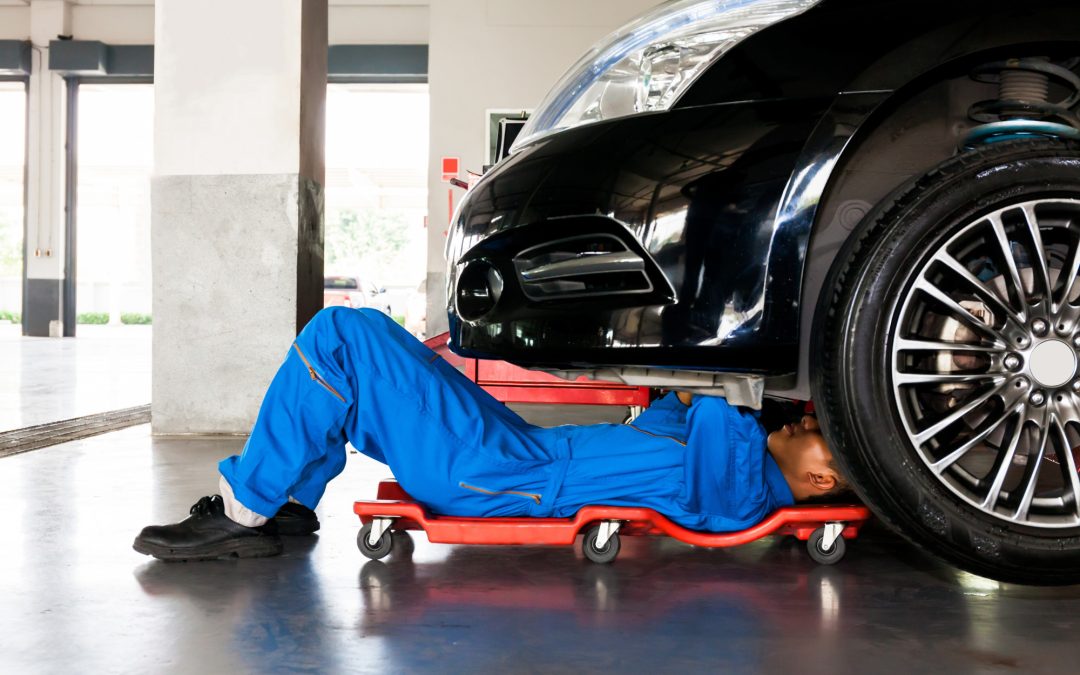If you’re planning on upgrading your garage, you may be thinking of new garage flooring. Epoxy is a common choice, but there are some real drawbacks to this type of flooring surface.
Spaces with heavy foot traffic need a durable flooring surface that will last. Although epoxy surfaces may be good for certain structures, they aren’t the best choice for your garage.
Take a look at the drawbacks of choosing epoxy coatings for your garage floor.
Temporary Flooring
One of the main drawbacks of epoxy floor coatings is that it’s only good temporarily. Although it may be durable for a while, you will have to replace it.
High traffic areas like garages need a durable floor surface that can stand up to constant wear and tear. Epoxy can’t measure up and will begin to peel and crack with time.
Although you may save a little money upfront, you’ll pay to recoat or replace epoxy with a more durable surface down the line.
Slippery Surface
Epoxy surfaces are not skid resistant. They can be very slippery, leading to slips or falls.
When an epoxy-coated floor gets wet, it can create a dangerous situation. For this reason, epoxy is a poor choice for water-prone areas like a garage.
Although you can texturize epoxy floors, they may not hold up as well as other surfaces or finishes.
Harsh Smell
Curing/drying epoxy emits strong fumes that can irritate the nose and throat. The smell can linger for a while until the surface has time to cure.
Many epoxy products have a strong odor and emit an ammonia-like smell that some homeowners may find offensive. The main cause of this odor is the presence of solvents and Volatile Organic Compounds (VOCs), which can be hazardous when exposed for prolonged periods of time.
Anyone dealing with curing epoxy should wear a mask and gloves to avoid inhaling noxious fumes.
Time-Consuming Application
Epoxy does not cure quickly. It can take up to five days before you can drive on the surface.
That’s a long time to keep your car, kids, and family out of the garage. A long cure process can lead to imperfections due to dust, dirt, and insects.
The catalyst and hardener require correct mixing for adequate curing. Too much moisture can also affect the curing process.
For a better alternative, hire a flooring specialist for your garage upgrade.
Prone to Damage
It’s easy to damage an epoxy coating. It’s prone to scratches, nicks, and discoloration.
Normal wear and tear can lead to marks and imperfections that ruin the slick look of epoxy. Excess moisture will also damage epoxy over time.
You can choose epoxy and plan to replace it at some point or choose a more durable flooring surface that will last for years to come for your garage.
Adhesion Issues
Epoxy doesn’t adhere well in very cold temperatures or in high moisture areas like the basement. In these situations, epoxy isn’t the best choice for flooring.
It can peel easily, costing you time and money to repair or replace the epoxy surface. Be sure to ask a flooring expert about alternative choices that will suit your space and flooring needs.
Traps Moisture
Epoxy flooring can develop efflorescence. This is a white residue that collects due to a moisture issue. Dark spots on an epoxy surface are also a sign of water issues.
Water vapor cannot pass through epoxy, so, over time, moisture can damage the coating and affect the appearance of the floor. Moisture barriers should be installed under a coating to mitigate moisture issues for coated floors.
Extra Costs
If you plan to DIY an epoxy floor, you’ll need to buy more than the flooring materials. You’ll also need cleaning acids, large equipment, and other solutions to ensure the epoxy adheres to the garage floor.
Protective eyewear, masks, and breathing devices are recommended due to the excessive fumes of curing epoxy. This all adds up to more time and expense for you.
Unless you’re a flooring expert, you should leave this job to a professional installer.
Difficult Removal
Once you apply epoxy, it’s hard to remove completely. If you want to replace it, change the color, or try a different design, you’re in for a time-consuming and labor-intensive project.
Repair jobs aren’t easy and removing the coating is a tricky process. There are other flooring options that are more durable and last much longer than epoxy flooring.
Fading Color
Epoxy comes in a variety of color options, but the color fades over time. UV exposure damages the surface and leads to yellowing or discoloration.
That’s why epoxy is a poor choice for outdoor surfaces like patios, walkways, or decks. When your garage door is open, the UV exposure will affect the epoxy coating and dull the color of your garage floor.
The Drawbacks of Epoxy Coatings
Epoxy coatings are good for some surfaces. But it’s not the best choice for your garage floor.
Epoxy is prone to yellowing, chipping, and hot-tire pickup which can ruin the look of your garage floor. Concrete is a much better and more durable choice for high-traffic areas like your garage.
If you’re looking for a beautiful and long-lasting garage floor, our flooring experts would love to help you. Contact us today to learn more.

